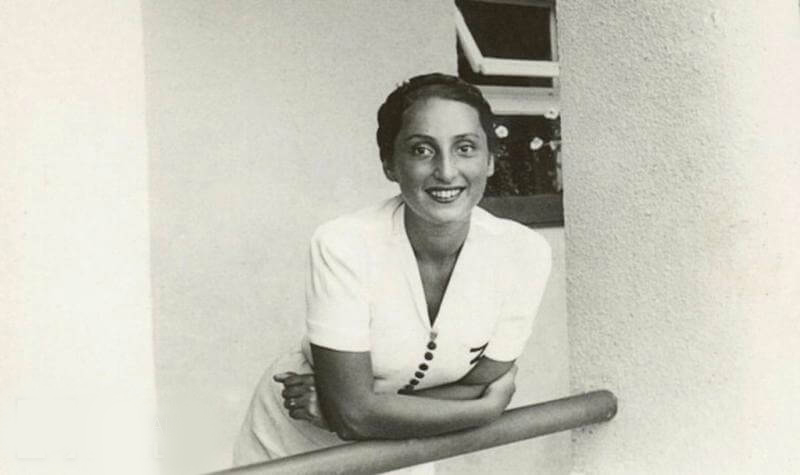On March 22, 1917, Zuzanna Polina Ginzburg, known by her creative pseudonym Zuzanna Ginczanka, was born in Kyiv, a Polish poet of Jewish origin, an active figure in the women's movement of the Second Polish-Lithuanian Commonwealth. The future poetess spent her childhood and youth in Rivne, where her grandmother, Klara Sanberg, lived. It was she who took care of the girl after her parents divorced.
In 1935, Zuzanna Ginczanka entered the University of Warsaw, but due to a wave of anti-Semitism, she never finished her studies. Despite this, the girl already had the fame of a gifted poetess. Z. Ginchanka's literary debuts date back to her studies at the Rivne Gymnasium, but her participation in the contest of the leading literary publication in Poland – “Wiadomości Literackie” (Polish: “Literary News”) brought her all-Polish fame. By the way, the initiator of Zuzanna's participation in the contest was another Polish poet of Jewish origin – Julian Tuwim. In 1936, the only collection of poems published during the lifetime of the poetess was “O centaurach” (from the Polish “About centaurs”).
The outbreak of World War II finds Zuzanna Ginczanka at Grandma Clara's house. The latter does everything to help her granddaughter and transports her to Lviv. During the Soviet occupation (1939–1941), Zuzanna joined the Union of Soviet Writers, published some works in Polish-language newspapers in Lviv.
With the beginning of the German-Soviet war and the establishment of the Nazi occupation, the girl hid in Lviv, and later in Krakow. At the beginning of 1944, Zuzanna Ginczanka was arrested by the Gestapo based on a report from her neighbors. The date of the execution of the “femme fatale”, “Star of Zion”, “beautiful Sulamiph”, as her supporters called her, is unknown, but most likely it happened in the spring of the same year.
Researchers of Zuzanna Ginczanka's work say that she did not stop writing even during the Nazi occupation. Unfortunately, it is unclear whether her creative output from this period has survived. However, it was in 1942 that she wrote the poem “Non omnis moriar” (from the Latin “No, I will not die”)[1] – a work that is one of the poetic symbols of the Catastrophe in the occupied territories of Ukraine. In the post-war period, the poem became one of the pieces of evidence in the trial against Zofia Khominova from Lviv, the concierge of the house where the poetess hid in 1941-1942. It was Khominova who wrote several denunciations, as a result of which Z. Ginczanka was exposed and only by a miracle did she manage to escape.
This translation “Non omnis moriar” was created by Ukrainian literary critic, doctor of philological sciences, professor Yaroslav Polishchuk. It is he who deserves the credit of returning or even opening Zuzanna Ginczanka and her work to the Ukrainian reader. We invite you to familiarize yourself with one of his articles dedicated to the poetess, using the link.
In the Museum's library, you can find the only collection of poems by Z. Ginczanka, published in Ukrainian, and you can learn more about the course of her life from the video authored by our scientific collaborator Maryna Strilchuk.
Yehor Vradii

